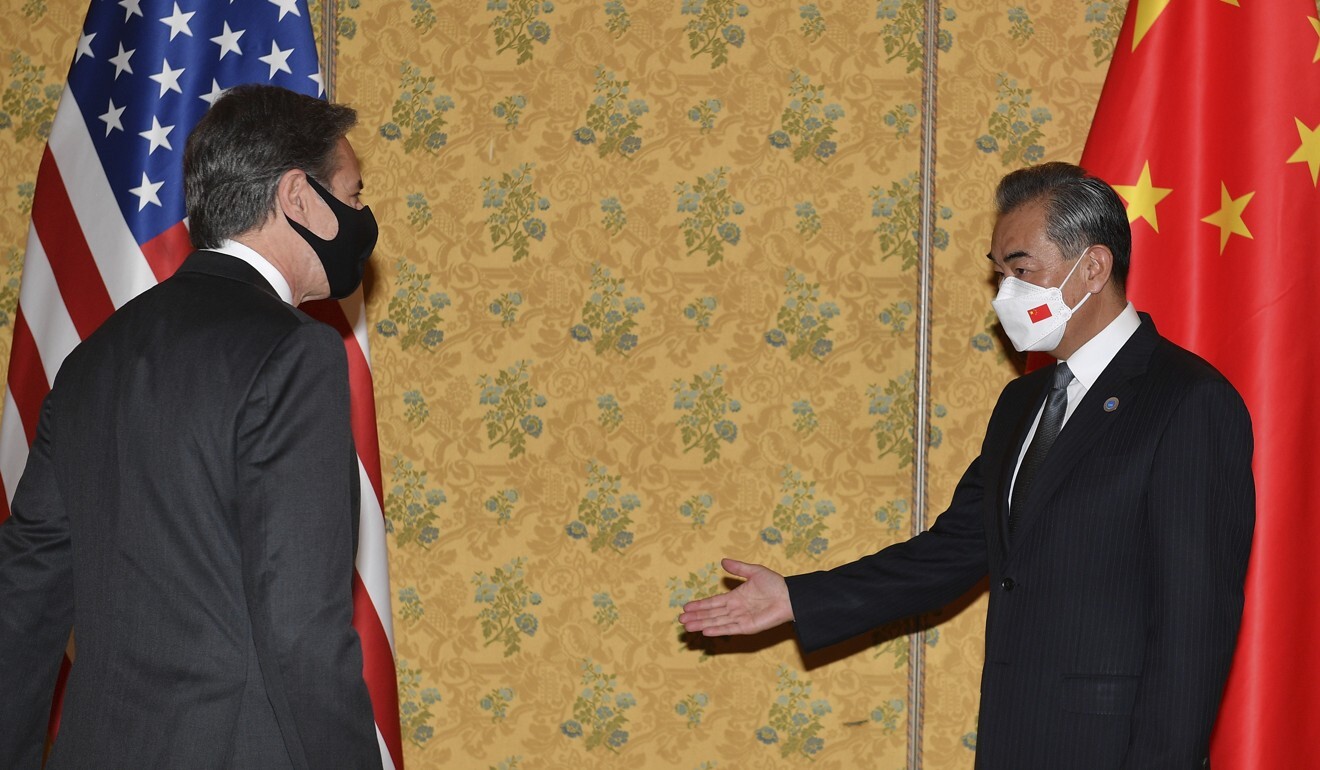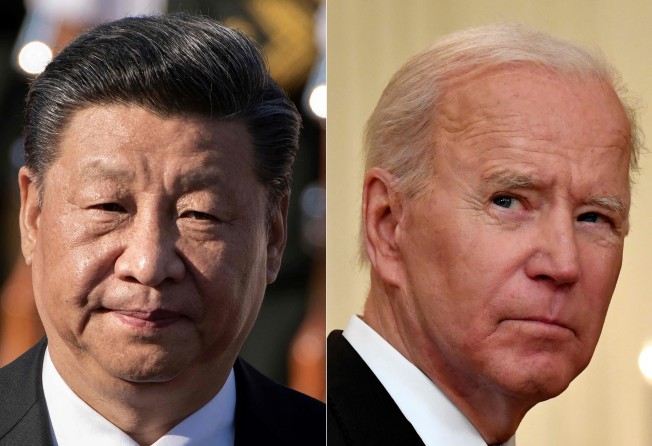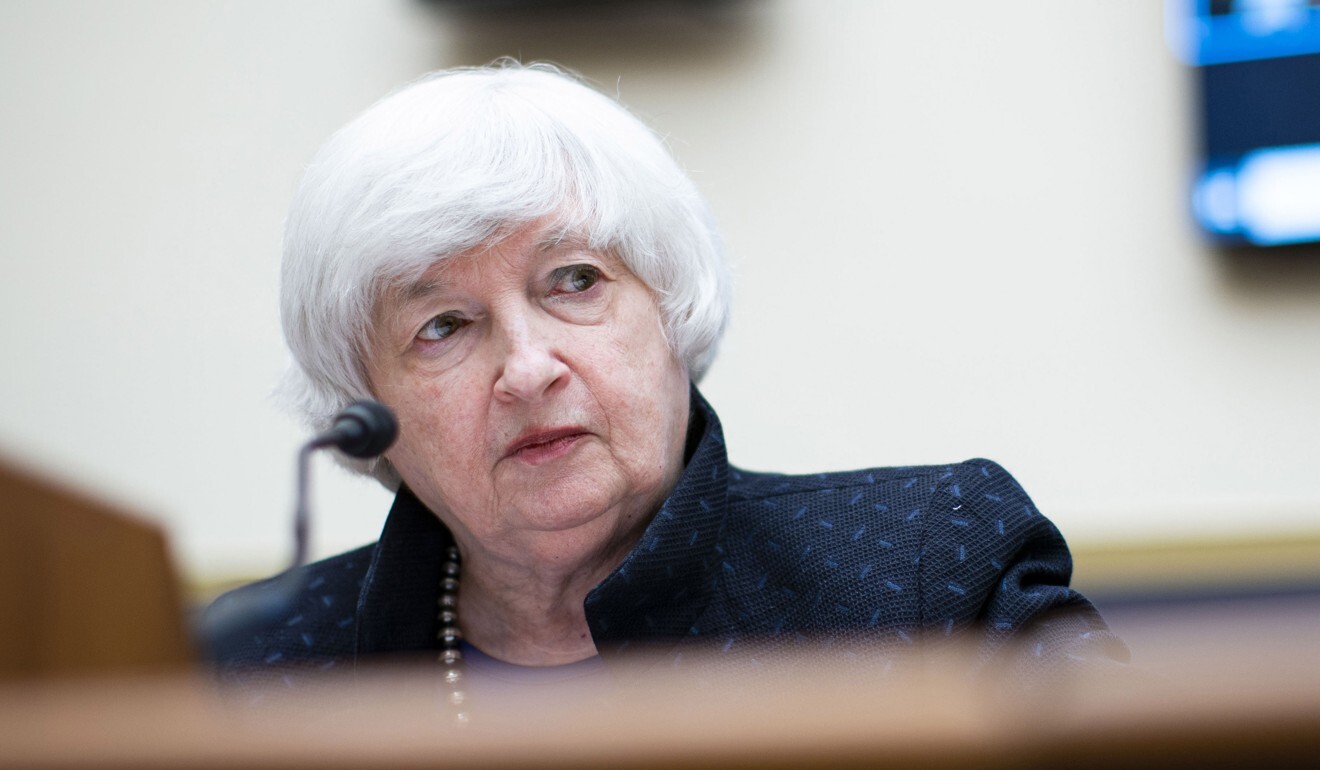
Taiwan is the main problem for Xi Jinping-Joe Biden talks, Chinese observers say
- Foreign Minister Wang Yi said ‘political preparations’ were needed for the next phase of exchanges, in a meeting with Secretary of State Antony Blinken
- According to observers he was mostly referring to controlling tensions over Taiwan to create the conditions for the two leaders to meet

Beijing and Washington need to manage their tensions over Taiwan to create the conditions needed for Xi Jinping and Joe Biden to meet, according to Chinese observers.
That was the assessment after Chinese Foreign Minister Wang Yi and US Secretary of State Antony Blinken met for talks in Rome on Sunday, with Wang saying engaging in dialogue was an “urgent task” for the two nations to avoid further confrontation. He said that was the consensus when Chinese leader Xi and US President Biden spoke by phone in September.
“The two sides must earnestly implement the consensus reached by the two heads of state, and make political preparations and provide necessary conditions for the next phase of exchanges,” Wang said, according to a Chinese foreign ministry statement.
Wang was in Rome as Xi’s special envoy at the Group of 20 summit, which the Chinese president attended via video link.
In their meeting, Blinken “underscored the importance of maintaining open lines of communication to responsibly manage the competition between the United States and the People’s Republic of China”, according to a statement from the US State Department.
Blinken also raised concerns about Chinese actions that “undermine the international rules-based order”, including those related to human rights, Xinjiang, Tibet, Hong Kong, the East and South China seas, and Taiwan.

According to observers, Wang’s reference to “political preparations” was mostly about controlling tensions over Taiwan to create the conditions needed for the two leaders to meet – a summit that is expected to happen before the end of the year. Beijing claims Taiwan as its own territory and has been angered as Washington moves closer to the self-ruled island.
“It basically means that if the US will not make positive concessions on the Taiwan issue, then they can forget about the summit at the end of the year,” Liu Weidong, a US affairs specialist with the Chinese Academy of Social Sciences, said of Wang’s remarks.
“The situation across the Taiwan Strait has been escalating recently, with the US constantly pushing the boundaries to put pressure on China,” he added.
Washington has long had a policy of “strategic ambiguity” in relation to Taiwan – meaning it does not explicitly say if the US would take military action if the island came under attack from mainland China.
Biden fuelled speculation earlier this month when he said the US would come to Taiwan’s defence if the People’s Liberation Army attacked the island – comments that were later walked back by White House officials. Last week, Blinken called for support for Taipei’s international participation in the UN system, further raising Beijing’s ire. Days later, Taiwanese President Tsai Ing-wen confirmed for the first time the presence of US troops in Taiwan.
In the talks with Wang on Sunday, Blinken made clear that Washington had not changed its one-China policy regarding Taiwan, Reuters reported, citing a State Department official.

Shi Yinhong, an international affairs expert with Renmin University, said Beijing wanted a de-escalation of tensions not just over Taiwan, but in other areas too, and that the US should “step on the brakes” to avoid a serious impact on relations with China.
The rift between Beijing and Washington goes far beyond Taiwan – they are at odds on issues ranging from trade and technology to human rights and the origins of the coronavirus. Beijing is also concerned by US efforts to build an alliance network in the Indo-Pacific region, which Washington says is needed to counter China’s rising military power.
But there are signs that frictions over trade could be easing. US Treasury Secretary Janet Yellen told Reuters on Monday that while Washington expected Beijing to meet its commitments under the phase one trade deal signed in 2020, it may look at reducing some tariffs.
“Our trade representative has said that we would consider additional tariffs reductions,” she was quoted as saying. “We want to see China meet their commitments they made under phase one, but stabilising and perhaps eventually lowering some tariffs in a reciprocal way could be a desirable outcome.”